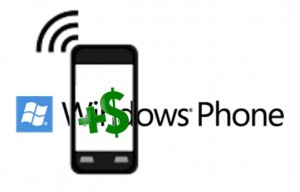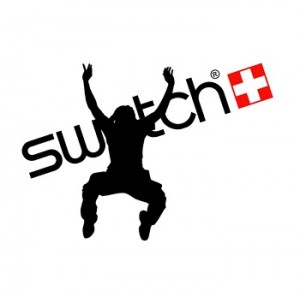Windows 10 to bring Host Card Emulation to Windows Phone
Windows Phone users have had very limited options when it comes to mobile payments. One of the few services that were available to these users, Softcard, was recently shut down after its acquisition by Google. With the closure of Softcard, many Windows Phone users have been pushed out of the mobile commerce space. That may change soon, however, as Windows 10 will be coming to the platform. The latest version of the mobile operating system will feature Host Card Emulation.
Software architecture offers a way to support mobile payments on Windows Phone
Host Card Emulation is a type of software architecture that is meant to provide virtual representation for various types of cards, such as credit and debit cards. This serves as a way to support mobile transactions made on a device, such as a smartphone or tablet. Using Host Card Emulation, devices do not need to have a secure SIM card solution and consumers do not need to use a specialized application in order to make mobile payments.
NFC-enabled Windows Phones may be able to make mobile payments in the near future
 Though Windows 10 will feature Host Card Emulation, those wishing to participate in mobile commerce on Windows Phones will have to have an NFC-enabled mobile device. NFC technology allows for digital information to be sent over short distances and this technology has become the backbone for most mobile payments platforms, which has lead to the increased availability of NFC-enabled mobile devices. Many Windows Phones have NFC capabilities, but older devices may not be equipped with NFC technology.
Though Windows 10 will feature Host Card Emulation, those wishing to participate in mobile commerce on Windows Phones will have to have an NFC-enabled mobile device. NFC technology allows for digital information to be sent over short distances and this technology has become the backbone for most mobile payments platforms, which has lead to the increased availability of NFC-enabled mobile devices. Many Windows Phones have NFC capabilities, but older devices may not be equipped with NFC technology.
Microsoft could attract more people to Windows Phone if it supports mobile commerce more aggressively
Windows Phone may not be the most popular mobile device in the world, but there are a significant number of people with these devices. These consumers have expressed interest in participating in mobile commerce, but they have had limited support for this interest. Microsoft may be able to revitalize favor for its mobile devices if it can manage to provide support for mobile payments.
The wristwatch maker and tech company has revealed its plans to compete in the wearable technology category.
The bestselling watchmaker in the world, Swatch Group, has now announced its intentions to introduce new models of smartwatch that will allow consumers to be able to display data from smartphones and to even make contactless payments by way of wearable technology.
The CEO of the company, Nick Hayek, has stated that the first versions of this gadget will be available in May.
At the same time, Hayek made it clear that Swatch doesn’t intend to try to replicate the types of smartwatch that have now been launched by many of the major players in the wearable tech categories, such as Motorola, Pebble, and Apple. Those fully featured devices are not the type of product that this company will be producing, at least not for the first wave. As a company that currently sells 18 percent of all wristwatches in the world, it could be possible that Swatch has a good idea as to what consumers really want to be wearing and what they want from those devices.
Swatch is now adding the smartwatch to its massive lineup that has consistently been growing its market share.
 The company makes wristwatches under a range of different brands, including Calvin Klein, Omega, Breguet, Rado, and several others, in addition to its own. It has managed to maintain a consistent growth of its market share over a steady five years and has seen significant sales growth, as well, despite the fact that wristwatches had been somewhat falling out of favor as an accessory.
The company makes wristwatches under a range of different brands, including Calvin Klein, Omega, Breguet, Rado, and several others, in addition to its own. It has managed to maintain a consistent growth of its market share over a steady five years and has seen significant sales growth, as well, despite the fact that wristwatches had been somewhat falling out of favor as an accessory.
Now, the company is stepping into a market that already feels flooded, even before these wearable technology devices have started becoming commonplace. Nick Hayek explained that there will be two types of wireless technology incorporated into the first wearables released by the brand. The first will be NFC technology. This will make it possible for the gadgets to trigger contactless payments, unlock hotel room doors and other compatible locks. The second will be Bluetooth, which will allow data to be sent and received through communication between the smartwatches and smartphones.
 Though Windows 10 will feature Host Card Emulation, those wishing to participate in mobile commerce on Windows Phones will have to have an NFC-enabled mobile device. NFC technology allows for digital information to be sent over short distances and this technology has become the backbone for most mobile payments platforms, which has lead to the increased availability of NFC-enabled mobile devices. Many Windows Phones have NFC capabilities, but older devices may not be equipped with NFC technology.
Though Windows 10 will feature Host Card Emulation, those wishing to participate in mobile commerce on Windows Phones will have to have an NFC-enabled mobile device. NFC technology allows for digital information to be sent over short distances and this technology has become the backbone for most mobile payments platforms, which has lead to the increased availability of NFC-enabled mobile devices. Many Windows Phones have NFC capabilities, but older devices may not be equipped with NFC technology.
 The company makes wristwatches under a range of different brands, including Calvin Klein, Omega, Breguet, Rado, and several others, in addition to its own. It has managed to maintain a consistent growth of its market share over a steady five years and has seen significant sales growth, as well, despite the fact that wristwatches had been somewhat falling out of favor as an accessory.
The company makes wristwatches under a range of different brands, including Calvin Klein, Omega, Breguet, Rado, and several others, in addition to its own. It has managed to maintain a consistent growth of its market share over a steady five years and has seen significant sales growth, as well, despite the fact that wristwatches had been somewhat falling out of favor as an accessory.